Aber Instruments
FUTURA Inline Biomass Sensors
Viable cell density probe
Measure and monitor viable cell density, inside your bioreactor, with ABER Instruments’ FUTURA inline biomass sensors. Accurate and real-time data will close the data gaps of offline analysis and allow for automated process- control, insights, and improvement. Aber sensors are adopted in biotech companies worldwide in both R&D as well as cGMP manufacturing.
- Real-time measurement of viable biomass
- Flexible and scalable system
- Robust and reliable performance
- Possibility to automate feed strategies
- Validated software; CFR21 part 11 compliant
- Automation
- Microbial Fermentation
- Good manufacturing practice (GMP)
- Process analytics technology (PAT)
- Process Development
- Upstream
- Cell Culture
- Biotechnology
- Cultured meat
- Alternative proteins
- Belgium
- Germany
- Ireland
- Luxembourg
- Netherlands
- Austria
- Switzerland
Aber Futura – Inline sensor for viable biomass measurement in bioreactors
The principle of the Futura system is based on cell capacitance technology (the ability of a cell to collect an electric charge). Cells with intact plasma membranes in a fermenter can be considered to act as tiny capacitors under the influence of an electric field. The non-conducting nature of the plasma membrane allows a build-up of charge. The resulting capacitance can be measured: it is dependent upon the cell type and directly proportional to the membrane-bound volume of these viable cells.
ABER´s technology converts capacitance into a live biomass reading, typically cells/mL or g/L. However, other units can be derived from the raw capacitance measurements; these may be more relevant to the chosen application. FUTURA also measures the conductivity of the medium. Conductivity is not used to measure biomass but is indicative of the production or utilization of ions by the cell suspension.
The robustness and proven performance of Aber’s sensors make them the first choice for manufacturing, providing a clear and consistent scalable pathway from R&D and process development all the way through to cGMP manufacturing.
The FUTURA system is a modular system existing of 3 hardware components and a software package. Need help in building your own FUTURA system? Please contact us and we will get in touch with you to discuss the most suitable option for your needs.
Aber Futura System Components
The FUTURA system contains three primary hardware components: the probe, the head amplifier, and the transmitter (connection hub). Various probes are available to suit all applications and bioreactors of different sizes. The head amplifier is the system’s main processing engine, powering the probe and transferring critical data to the chosen output. It is available in two distinct variants for reusable bioreactor systems. Transmitters or connection hubs come in a variety of options, depending on your output needs. It interfaces the system to a PC or any bioreactor control system. For validation and testing of the system, there is a probe tester and signal simulator available.
Applications
White paper – viral vector vaccines
The use of bio capacitance as an on-line PAT tool for continuously monitoring viral vector vaccines production in cell culture processes.
Application note – optimize perfusion
This application note explores the benefits of utilizing capacitance technology to perfect the online measurement and control of viable cell density which is essential for an optimal perfusion run.
Technical report
This report explores the benefits of using capacitance as a direct measurement of cell density and health in bioprocessing.
Technical data
Standard Futura | ||||
| Frequency Range | 50 kHz to 20 MHz | |||
| Measuring Range | Capacitance: 0.0 to 400 pF/cm Conductivity: 1.0 to 40 mS/cm +/- 0.1 mS/cm (Higher ranges available with compatible probes) | |||
| Cell Concentration Range | Depends on cell sizes but typically: Yeast (6 µm): 106 cells/ml to 1010 cells/ml Bacteria (1 µm): 109 cells/ml to 1013 cells/ml Animal Cell (12 µm): 105 cells/ml to 109 cells/ml Plant Cell (50 µm): 103 cells/ml to 107 cells/ml | |||
| Resolution | Resolution: 0.1 pF/cm. Approx: Bacteria typically 2 g/L dry weight or 2*109 cells/ml for E.coli Yeast or Animal Cells 0.05 g/L or 1*105 cells/ml The relationship of these capacitance values to biomass levels depends upon the cell type and line. | |||
| Accuracy | Typically better than +/- 3% or +/- 2% of the reading | |||
| Stability | Better than +/- 0.2 pF/cm at constant temperature with standard conductivity solution of ~ 12 mS/cm | |||
| Linearity | Better than +/- 1% over 100 pF/cm | |||
| Precision | Typically < +/- 0.5 pF/cm, no filter active. | |||
| Dimensions (H x W x D) | 50 mm x 130 mm x 64 mm | |||
| Weight | 375 g | |||
Standard Remote Futura | ||||
| Frequency Range | 50 kHz to 20 MHz | |||
| Measuring Range | Capacitance: 0.0 to 400 pF/cm Conductivity: 1.0 to 40 mS/cm +/- 0.1 mS/cm (Higher ranges available with compatible probes) | |||
| Cell Concentration Range | Depends on cell sizes but typically: Yeast (6 µm): 106 cells/ml to 1010 cells/ml Bacteria (1 µm): 109 cells/ml to 1013 cells/ml Animal Cell (12 µm): 105 cells/ml to 109 cells/ml Plant Cell (50 µm): 103 cells/ml to 107 cells/ml | |||
| Resolution | Resolution: 0.1 pF/cm. Approx: Bacteria typically 2 g/L dry weight or 2*109 cells/ml for E.coli Yeast or Animal Cells 0,05 g/L or 1*105 cells/ml The relationship of these capacitance values to biomass levels depends upon the cell type and line. | |||
| Accuracy | Typically better than +/- 3% or +/- 2% of the reading | |||
| Stability | Better than +/- 0.2 pF/cm at constant temperature with standard conductivity solution of ~ 12 mS/cm | |||
| Linearity | Better than +/- 1% over 100 pF/cm | |||
| Precision | Typically < +/- 0.5 pF/cm, no filter active. | |||
| Dimensions (H x W x D) | 30 mm x 135 mm x 64 mm | |||
| Weight | 211 g | |||
Technical Service
During our business hours, our free telephone support will be glad to assist you in case of any questions. Our Technicians take care of the delivery and installation of original spare parts of the highest quality as well as certified testing, measuring, and control equipment. Our maintenance according to manufacturer specifications includes functional tests, cleaning, accuracy testing with calibration as well as a detailed report. In addition, our maintenance contracts protect your investments and reduce the total cost of ownership.
Detailed information about our support options can be found here.

ABER, based out of the UK, with an expanding 60 strong technical team pioneered the use of dielectric spectroscopy for the bioprocess and brewing industries over 30 years ago. The company’s reputation as the ‘trusted’ provider and market leader, comes from this in-depth and extensive knowledge gained through invention and innovation. ABER always prides itself in going above and beyond in customer service & support. ABER’s Dielectric spectroscopy technology, also referred to as bio-capacitance, is used successfully in the bioprocess industry to measure cell density in bioreactors.
More about ABER Instruments: www.aberinstruments.com
Also interesting for you
![[Translate to EN:] Roche CustomBiotec Cedex Bio Analyzer](/fileadmin/user_upload/products/Roche/Cedex_Bio/CEDEX_BIO_Analyzer_IsoV2_HighRes_newDisplay_perspective_2.png)
Cedex Bio® Analyzer
The Cedex Bio® is an automated analyzer for determination of substrates, metabolites and produkts in aqueous solutions like cell culture and fermentation media in a low throughput environment. Up to 8 samples with continuous loading, measurement of up to 13 parameter in parallel (2-25 µl sample/parameter).
Learn more![[Translate to EN:] Roche CustomBiotec Cedex Bio HT Analyzer](/fileadmin/user_upload/products/Roche/Cedex_Bio_HT/1-CEDEX_BIO_HT_sRGB_LowRes-_1_.png)
Cedex® Bio HT Analyzer
The Cedex® Bio HT is an automated analyzer for determination of substrates, metabolites and products in aqueous solutions like cell culture and fermentation media in a high sample throughput environment. High sample capacity, up to 90 samples at once with continous loading, measurement of up to 28 parameter in parallel (2-20 µl sample/parameter).
Learn more
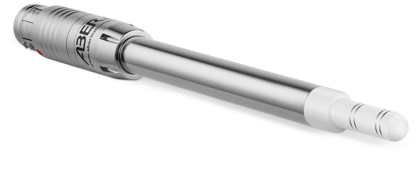
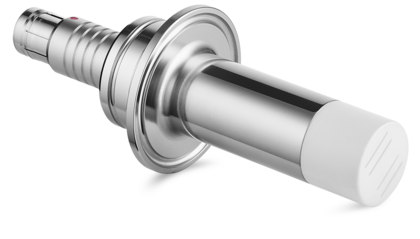
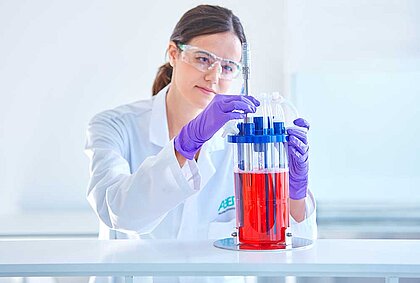
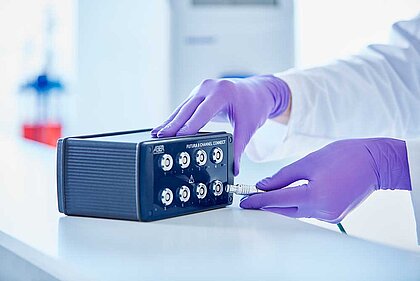
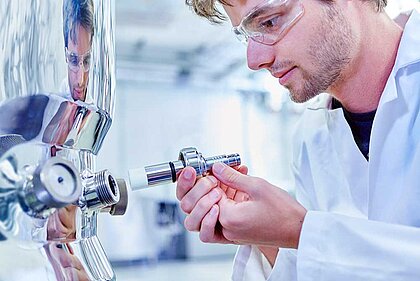
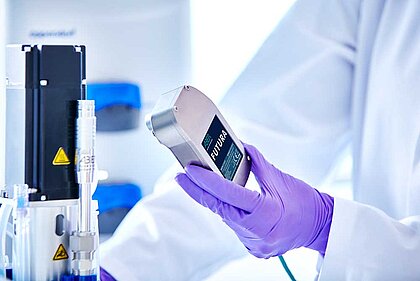
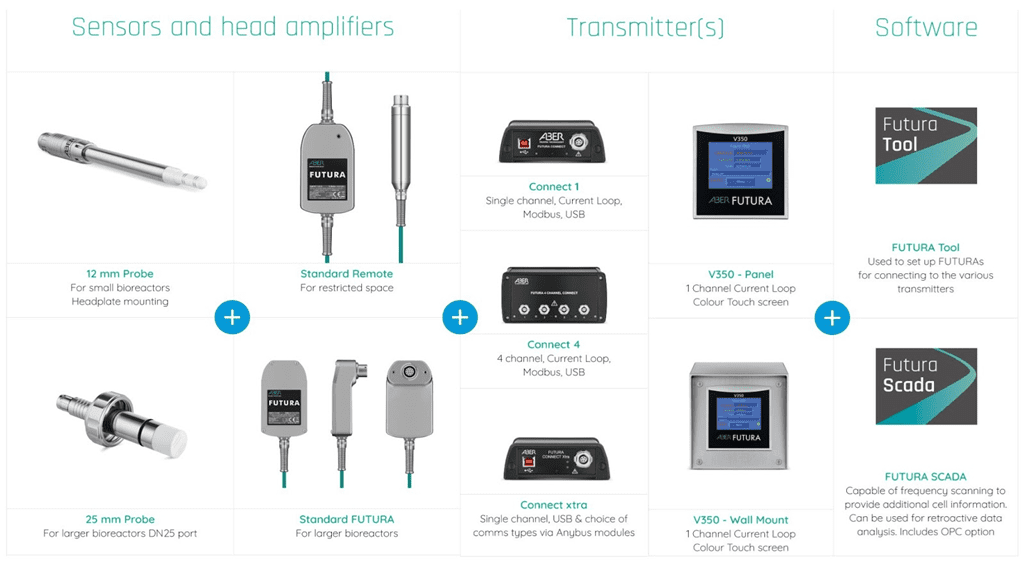



![[Translate to EN:] Flownamics SegFlow S3 Probennahmesystem](/fileadmin/user_upload/products/Flownamics/SegFlow_S3/Flonamics-04-23-19_43491-transparent.png)